Projects
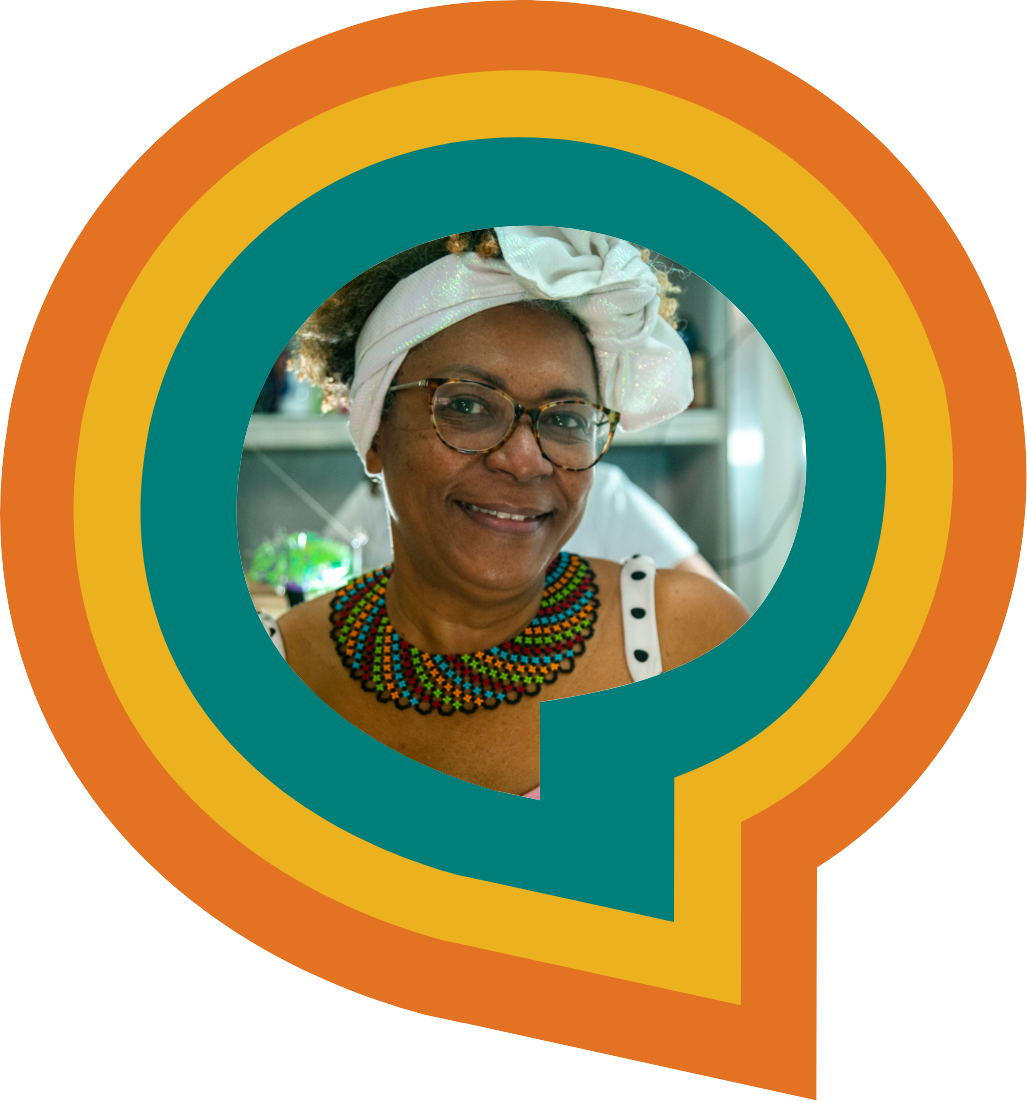
Vale Foundation’s projects and initiatives are developed and structured on Education, Basic Health, Productive Inclusion, and Social Protection, and include five Knowledge Stations. The projects are implemented in the territories in which Vale operates. On this page, you can learn more about the projects and filter considering the theme, the state or the city of operation.
AFM at Knowledge Stations
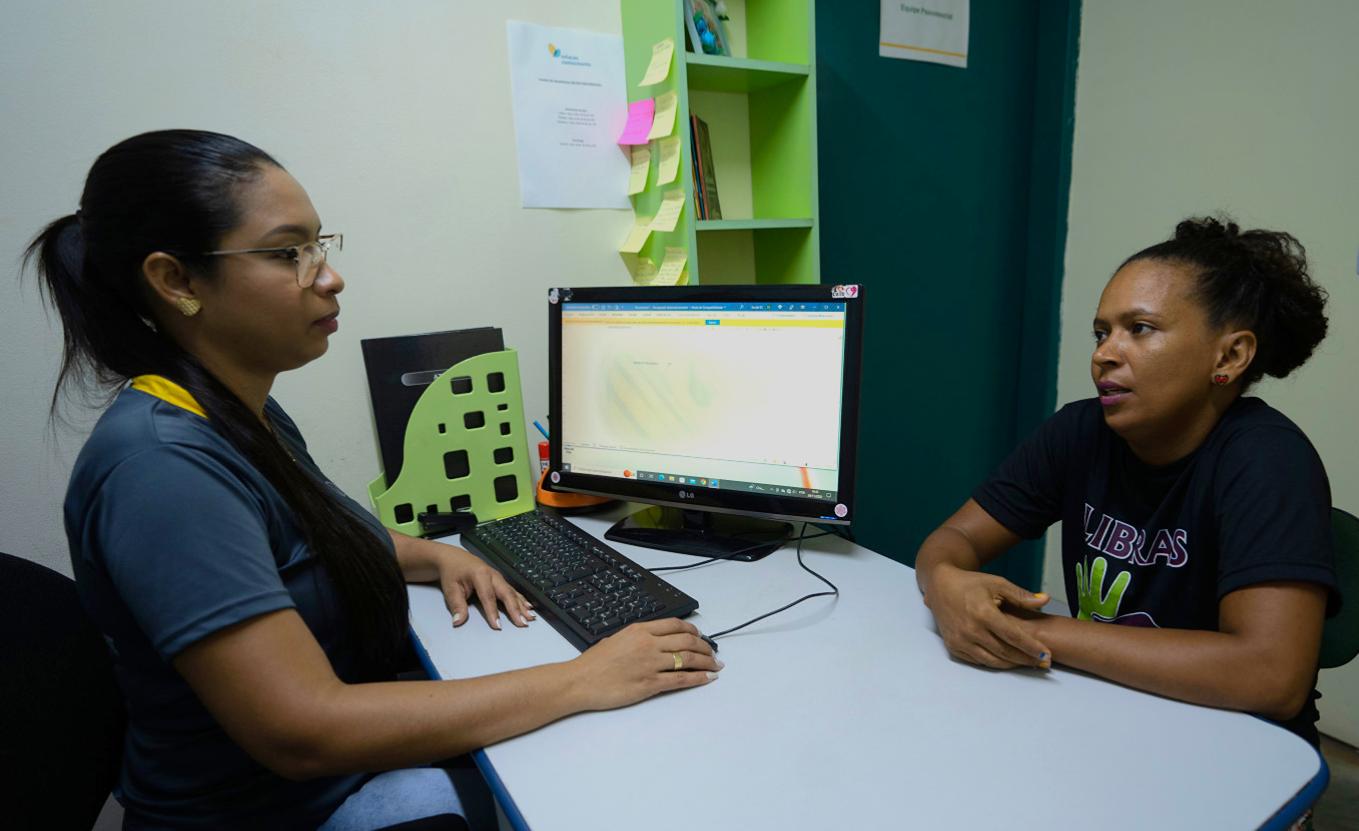
The Vale Foundation, with its extensive experience in strengthening public policies, established a partnership with Vale in the company’s commitment to support the movement of 500,000 people out of situations of extreme poverty by 2030.
To this end, the Vale Foundation leads the implementation of initiatives at the Marabá, Tucumã, Arari and Serra Knowledge Stations that use the Multidimensional Family Monitoring (AFM) methodology to help vulnerable families access essential rights and develop their autonomy. The actions consider five areas for approach (education, income, health, nutrition and infrastructure) and have as investment partners Wheaton Precious Metals (Marabá) and Hatch (Tucumã).
Agir – Support for Income Generation and Increase
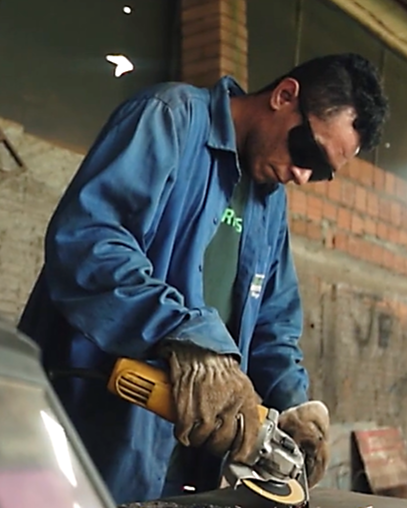
The Agir program – Support for Income Generation and Increase works to incubate and accelerate social businesses through training, technical advice, mentoring in financial management, governance, formalization, production and marketing of local businesses. Entrepreneurs are involved in all these stages so that, by the end of the program, their business models become autonomous. The aim is to engage associations, cooperatives and formal and informal productive groups to promote inclusion and better living conditions for the community. Currently, the Agir program is implemented in partnership with Impact Hub.
Babassu Coconut Breakers Project
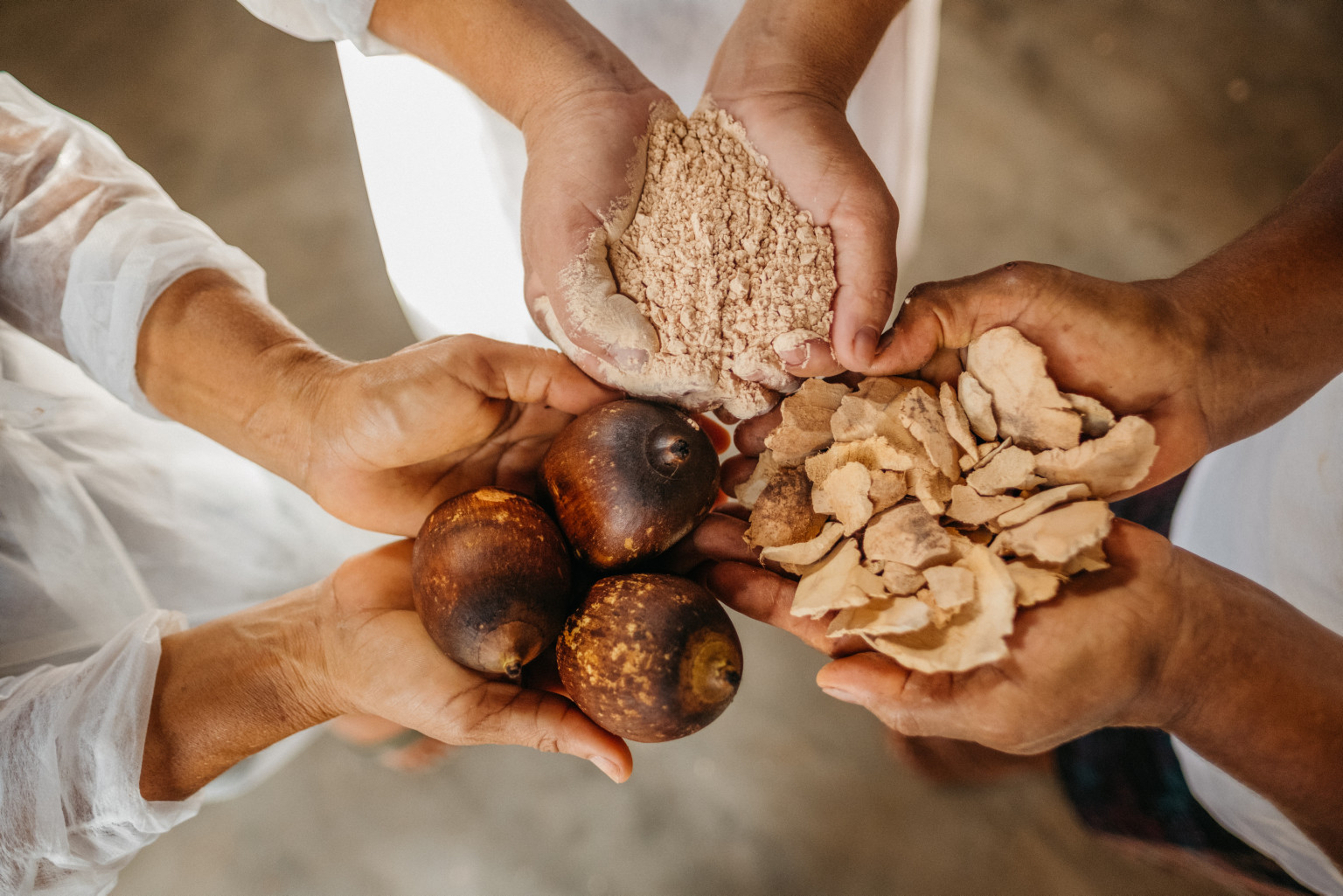
The Vale Foundation, with its extensive experience in strengthening public policies, established a partnership with Vale in the company’s commitment to support the movement of 500,000 people out of situations of extreme poverty by 2030. The Babassu Coconut Breakers Project is one of the Vale Foundation initiatives promoted with this objective. Conducted in partnership with Mandú Inovação Social, it has resources from Wheaton Precious Metals and the Brazilian Development Bank (BNDES) via the Socio-Environmental Fund.
The project focuses on Multidimensional Family Monitoring and community entrepreneurship with the aim of contributing to improving the living conditions and to valuing the craft of babassu coconut breakers in the state of Maranhão. It involves groups of coconut breakers from seven municipalities in Maranhão: Alto Alegre do Pindaré, Vitória do Mearim, Santa Inês, Igarapé do Meio, Pindaré Mirim, Tufilândia and Monção.
Citizenship Networks
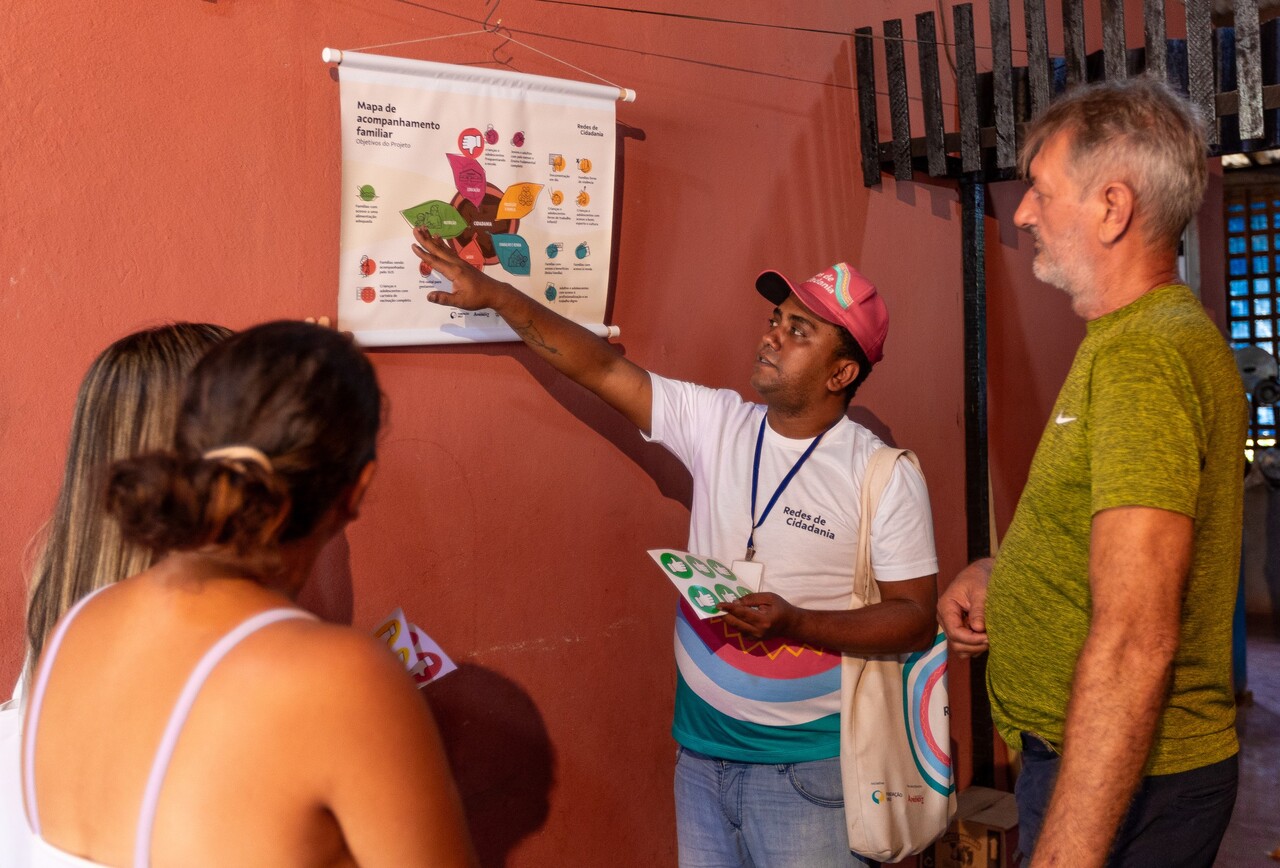
The Vale Foundation, with its extensive experience in strengthening public policies, established a partnership with Vale in the company’s commitment to support the movement of 500,000 people out of situations of extreme poverty by 2030.
The Citizenship Networks project is one of the initiatives promoted with this objective. It’s developed in Marabá (PA) and takes advantage of the experience of actions that already had a connection with the communities and families of the municipality to help guarantee the rights of vulnerable children and adolescents, through the application of the Multidimensional Family Monitoring methodology, which considers five fields for approach: education, income, health, nutrition and infrastructure.
The Marabá Knowledge Station and Cidade Escola Aprendiz are executing partners of the the project, which has investments from Wheaton Precious Metals.
Councils Strengthening Program
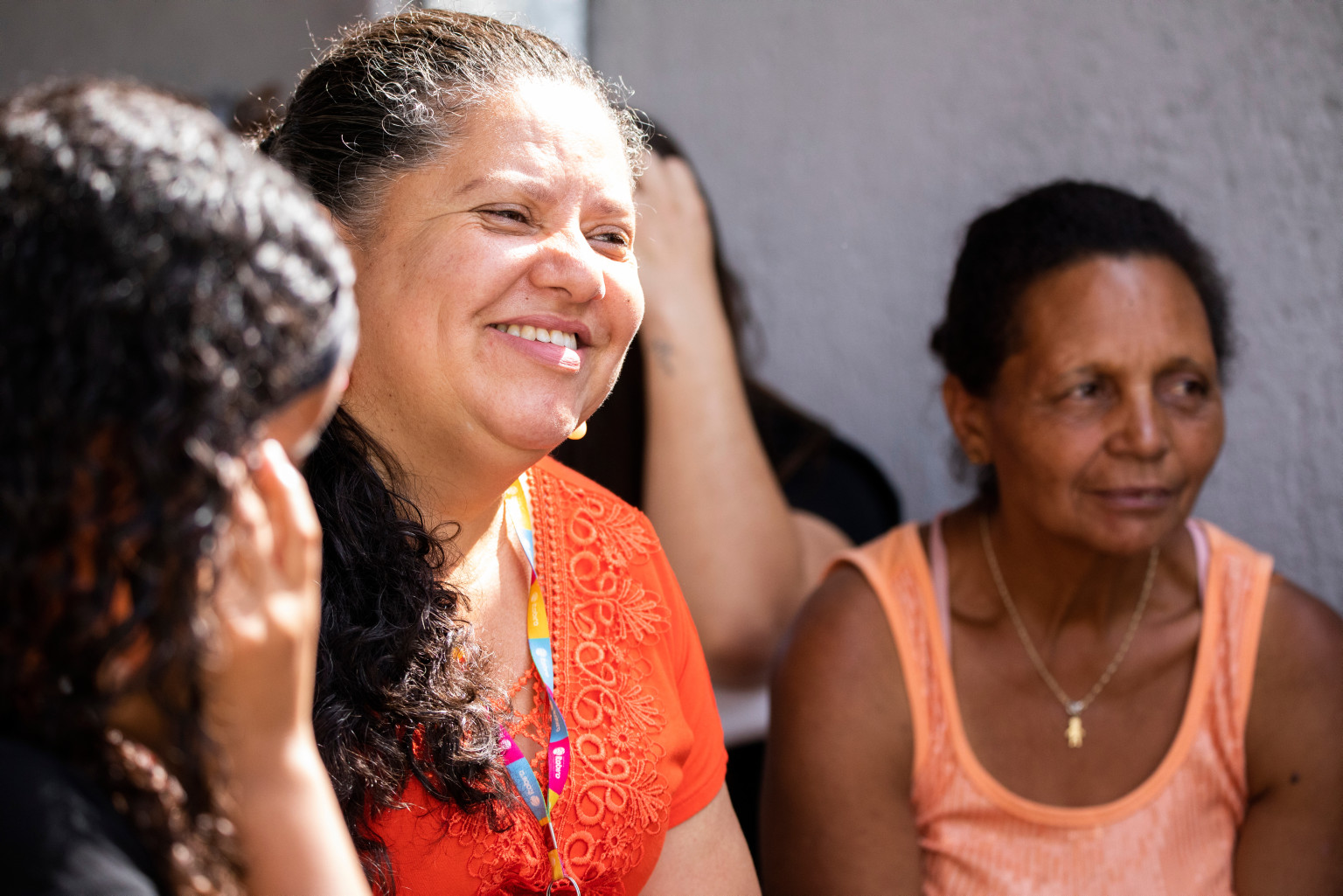
The Councils Strengthening program is an initiative of the Vale Foundation that encourages better use of Vale’s incentivized resources for the Children and Adolescents´ Rights Fund and the Elderly Fund. Implemented in partnership with Mmuller, its main objective is to contribute to strengthening the management and performance of the Rights Councils in public policies, addressing issues such as regularization processes, planning, use of funds’ resources, transfers to civil society organizations, monitoring of resource execution, transparency and accountability.
Family Circle
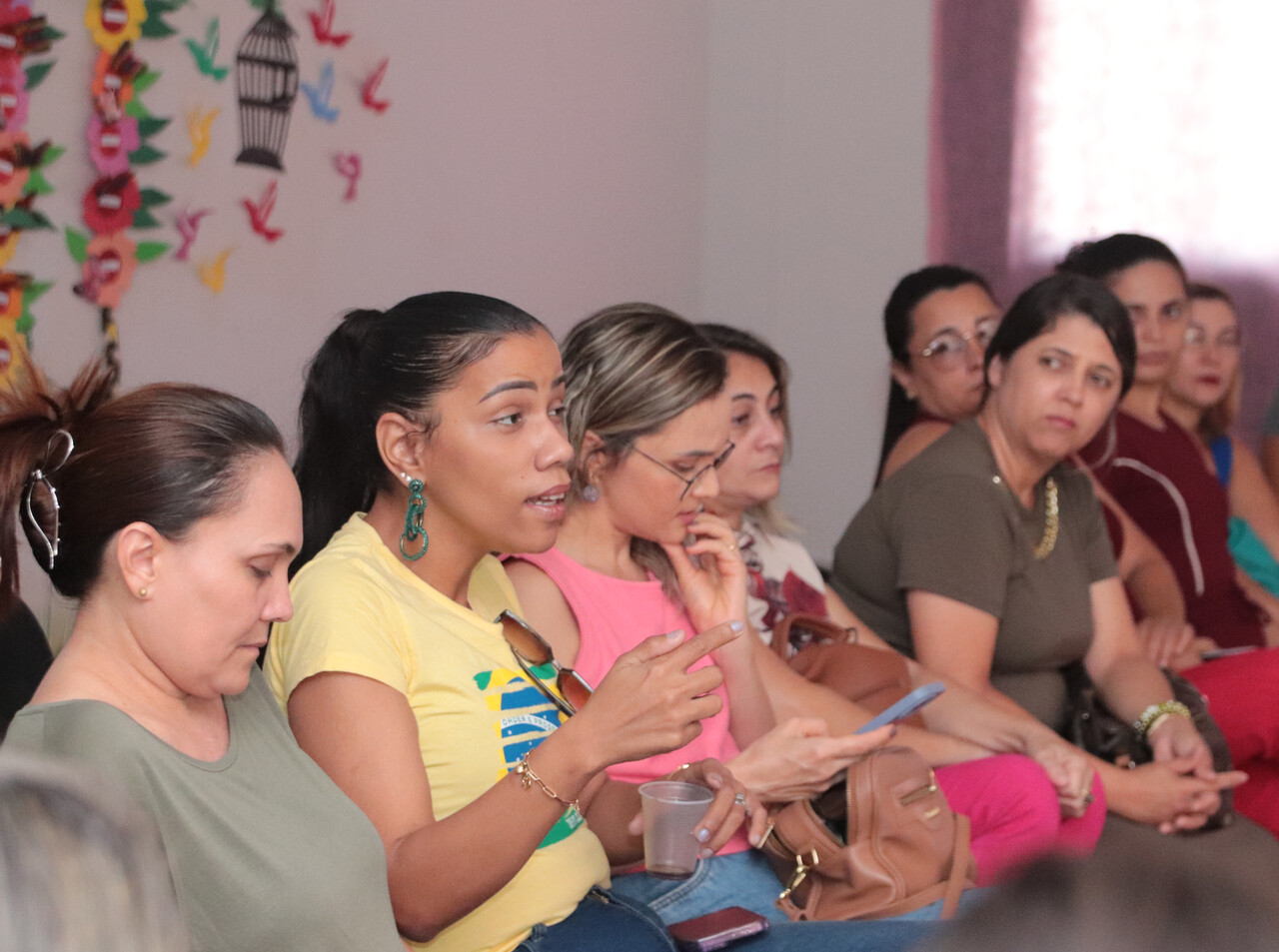
The Vale Foundation, with its extensive experience in strengthening public policies, established a partnership with Vale in the company’s commitment to support the movement of 500,000 people out of situations of extreme poverty by 2030.
The Family Circle project is one of the initiatives developed with this objective. It is carried out in the municipality of Canaã dos Carajás (PA), based upon the action of the Health and Social Cycle project, and has a partnership with the municipal city hall to implement the Multidimensional Family Monitoring methodology at the local CRAS (Social Assistance Reference Center). The companies Sotreq and U&M are investing partners in the project, and the Health Promotion Center (Cedaps) is the executing partner.
Food and Nutritional Security
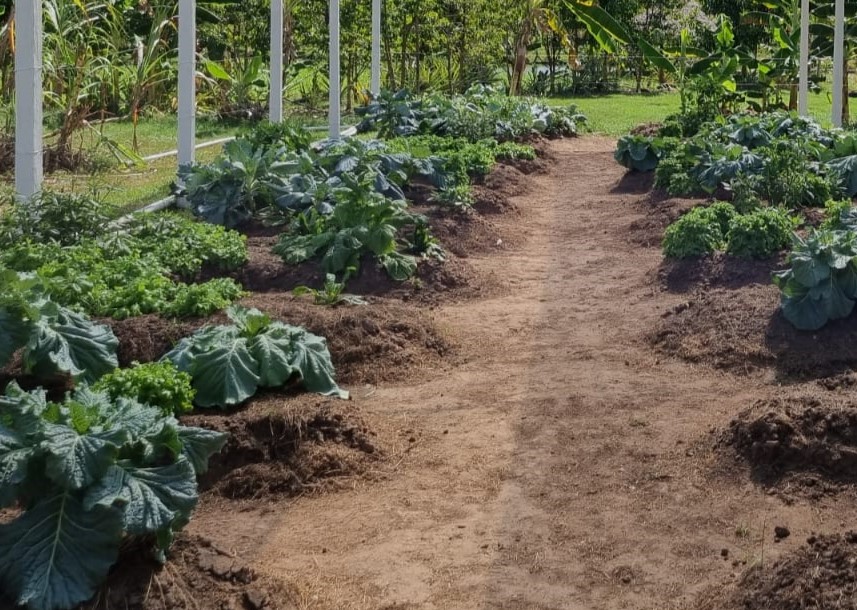
The project aims to support the structuring of sustainable rural production arrangements for family farmers in Minas Gerais and Maranhão. It is carried out in partnership with Instituto Meio and with complementary investments from BNDES within the scope of the Socio-Environmental Fund.
Future Maker
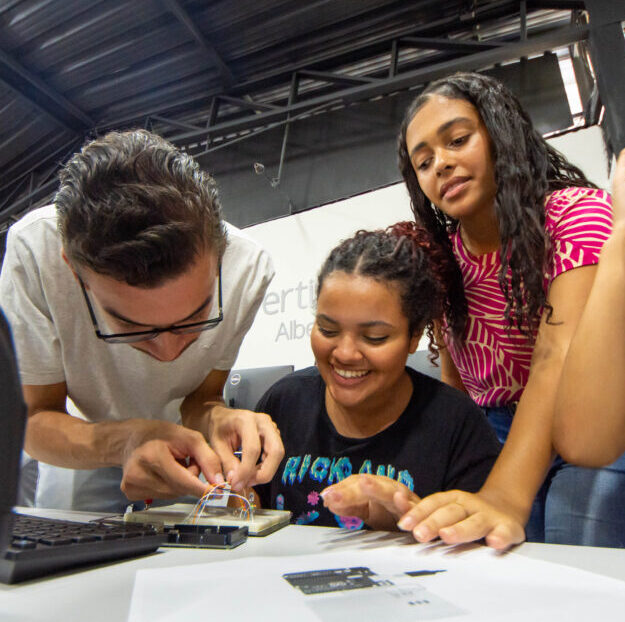
Carried out in Governador Valadares (MG), the Future Maker project helps vulnerable young people develop socio-emotional and professional skills in the area of Technology. In addition to technical training, the project offers psychosocial support and seeks to promote the personal development of the participants, so that they can understand their potential and adequately get prepared for the professional journey. The initiative is the result of a partnership among the Vale Foundation, the Social Service of Industry (Sesi) and the National Service for Industrial Training (Senai).
Health and Social Protection Cycle
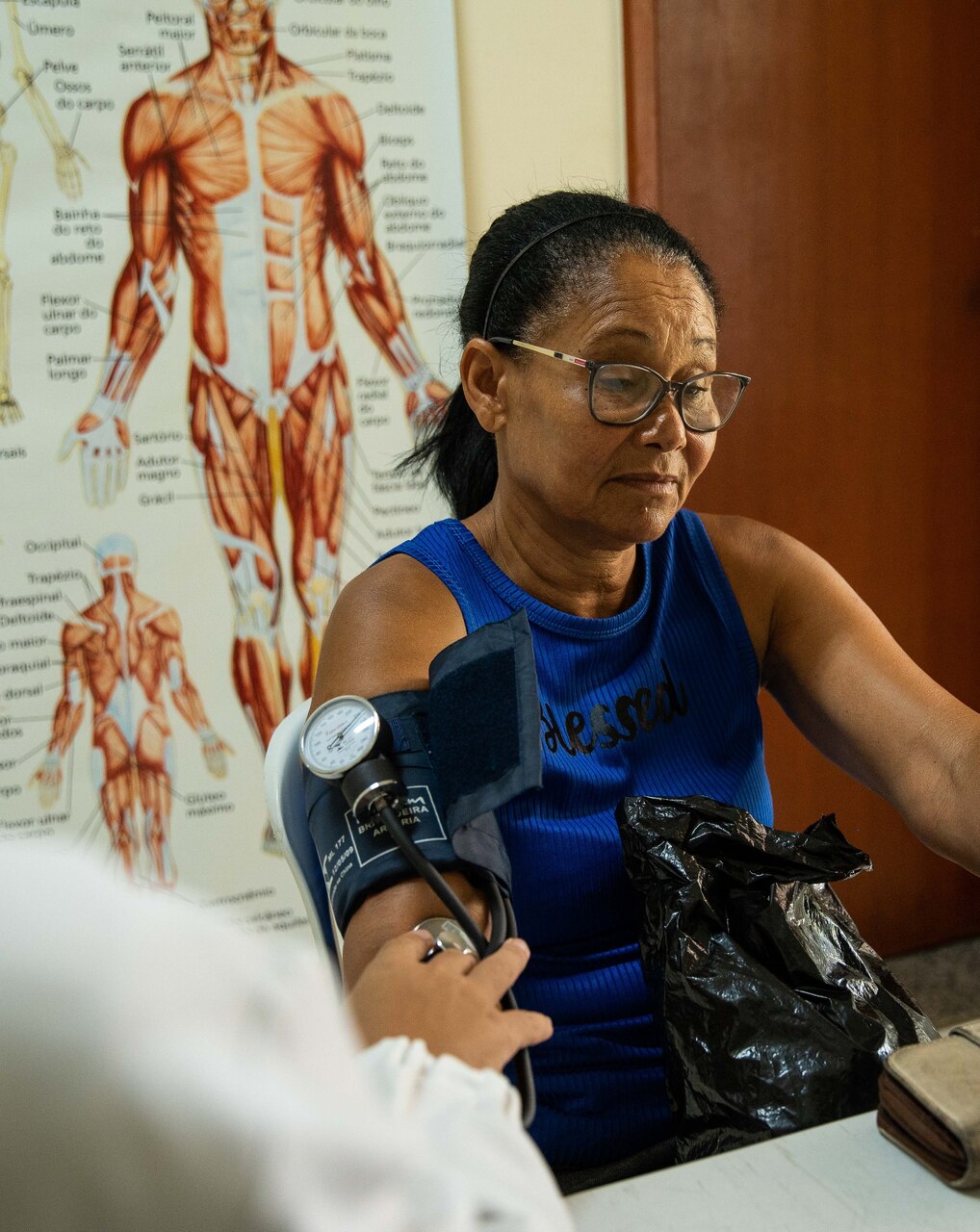
The Health and Social Protection Cycle aims to strengthen disease prevention actions and promote primary health care as a cross-cutting policy of the Unified Social Assistance System (SUAS). The actions are organized based on the experience accumulated by the Health Cycle project in the territories, with an emphasis on participatory methodologies that are recognized and produce effective results.
The project develops actions to encourage a culture of intersectoral work, foster the ongoing education of managers and professionals in the areas of Health and Social Assistance, expand the performance of Primary Health Care and Social Assistance and provide better technical and material conditions for actions that make a difference in the territories, in order to improve social and health indicators.
Implemented by the Health Promotion Center (Cedaps), the Health and Social Protection Cycle is conducted in collaboration with municipal departments and has the technical cooperation of Estácio, Unifesspa and PUC-Rio universities, in addition to investments from Wheaton Precious Metals and the Brazilian Development Bank (BNDES), through the Together for Health fund.